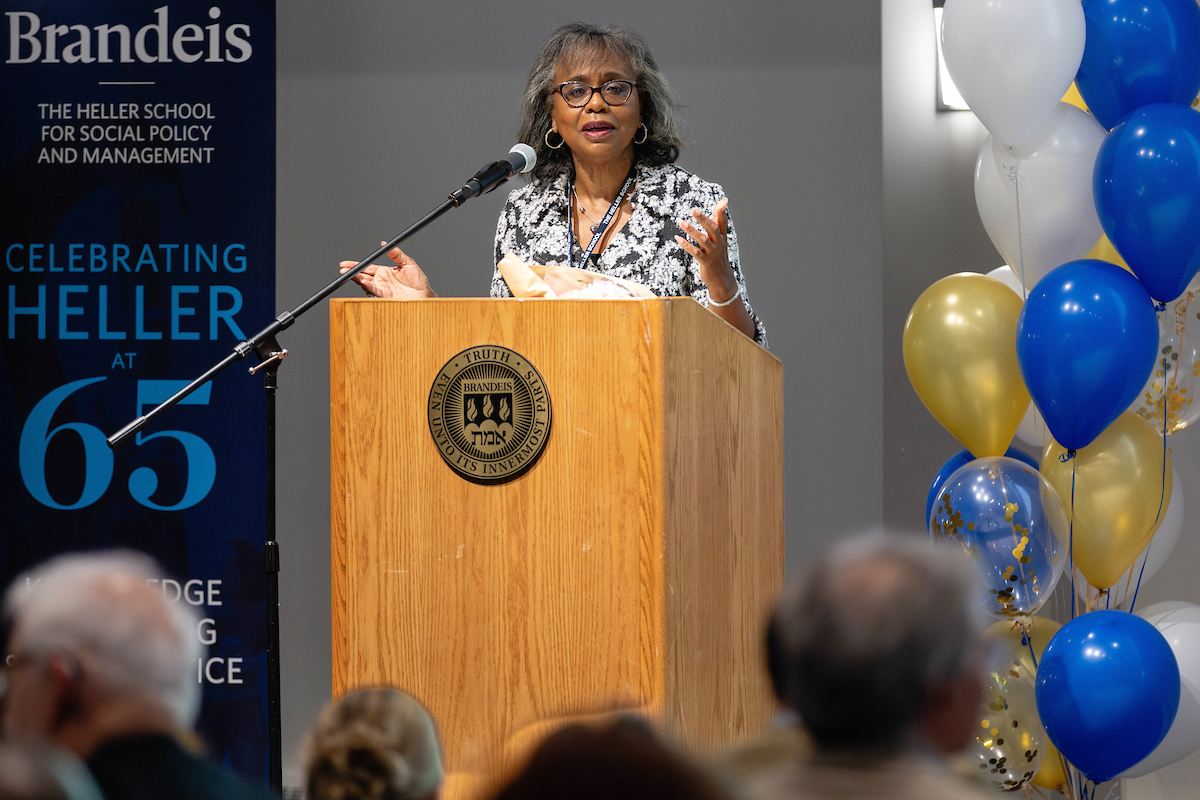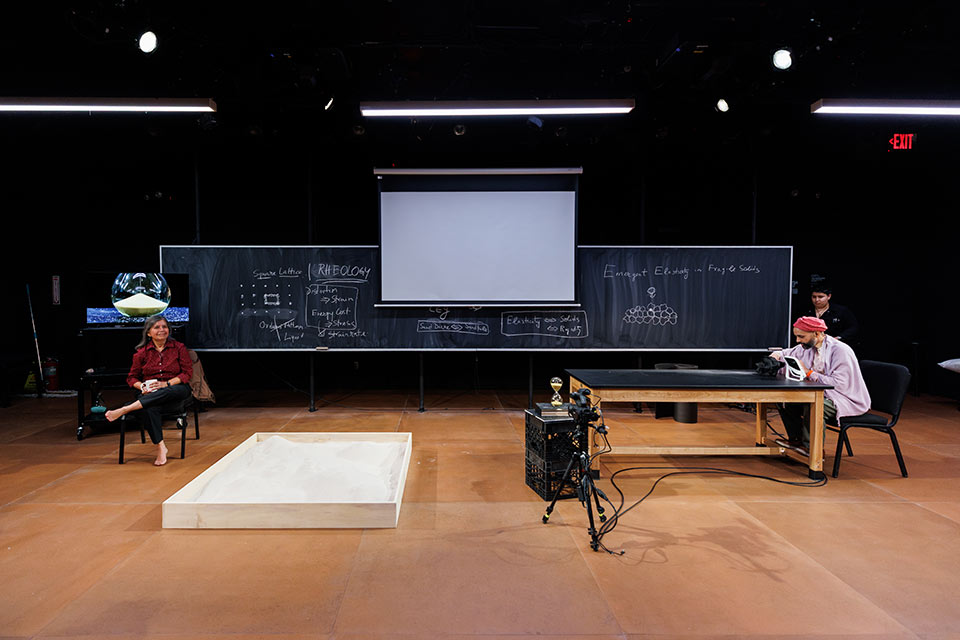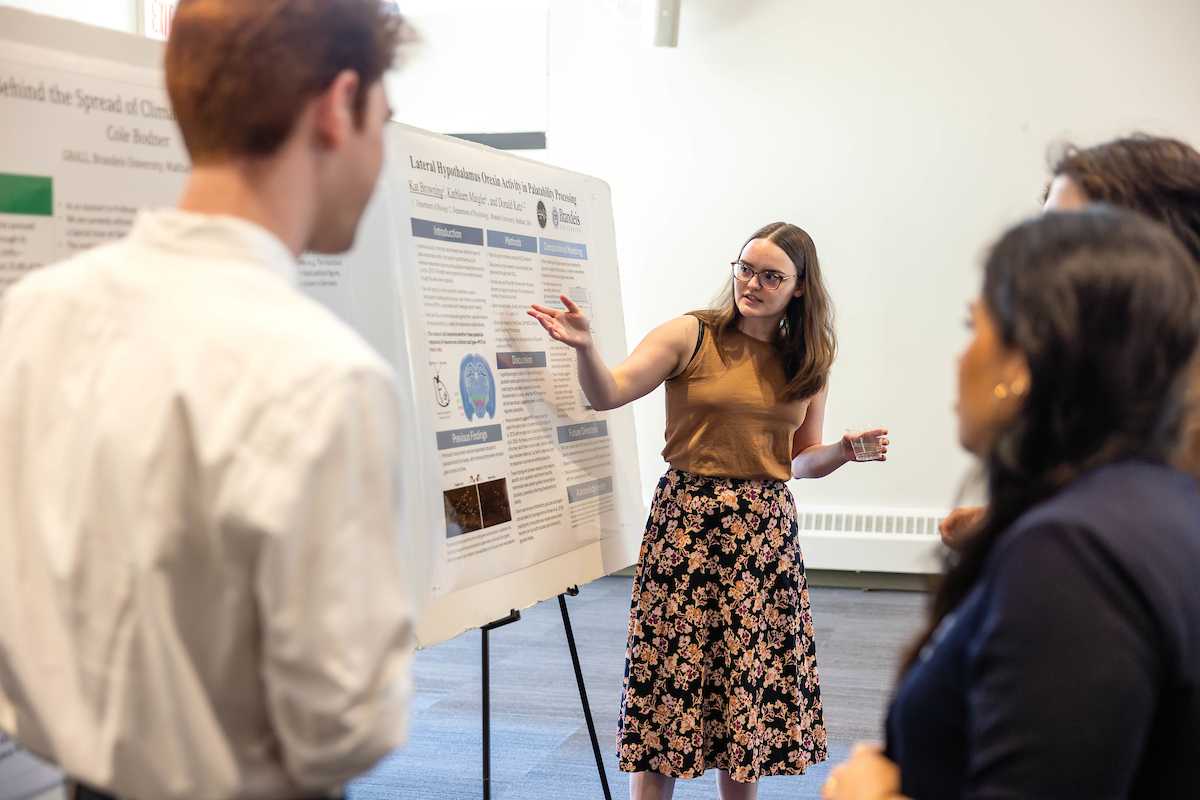Anita Hill: Courts stand as bulwark during constitutional crisis

Photo Credit: Gaelen Morse
By David Levin
June 4, 2025
In a sweeping address at Brandeis University’s Heller School, university professor and legal scholar Anita Hill delivered a forceful defense of the federal judiciary as the primary guardian of American democracy during a constitutional crisis created by the Trump administration.
Speaking to faculty, students and alumni as part of Heller’s 65th anniversary celebration, Hill, the David R. Pokross Professor of Law and Social Policy, argued that while Congress has largely abdicated its oversight role, federal courts have emerged as the crucial check on executive overreach. “While the congressional and executive branches, certainly now, as always, are sworn to obey the Constitution, the courts are the ones that are charged with interpreting it,” she said. “The trial courts and Courts of Appeal have shown that they are the ones who will move us out of this crisis if we expect to get there,” she added, pointing to the flood of litigation challenging the administration’s policies.
Hill’s analysis centered on three key areas where she sees the administration testing constitutional boundaries: immigration enforcement, government reorganization and federal education policy. In each case, she argued, lower courts have stepped in to halt executive actions that they conclude are in violation of the Constitution.
On immigration, Hill focused extensively on the administration’s use of the 1798 Alien Enemies Act to justify mass deportations. The law, which has a troubling history, has been invoked only three times in U.S. history. Most recently the 18th Century act was deployed during WWII to justify internment of people of Japanese, German and Italian descent, many of whom were American citizens. Federal judges have repeatedly blocked recent deportations under the act, she said, finding that the administration failed to show that the law was legally invoked, and had denied detainees due process.
Likewise, she argued, the courts have tempered the administration’s efforts to reorganize government agencies. Court challenges to those efforts have succeeded on constitutional terms, she said, with judges finding that the president overstepped his legal authority to reorganize the executive branch without collaborating with Congress.
Perhaps most relevant to her academic audience, Hill addressed the administration’s threats to withhold federal funding from schools that maintain diversity programs. She described a “Dear Colleague” letter from the Education Department that threatened K-12 schools for allegedly indoctrinating students with ideas about systemic racism. Three federal judges blocked the policy in April, she said, finding it “unenforceable because [its demands] are too vague to be understood by the people who are being threatened with them.”
Judges in all of these cases, she noted, have done more than simply interpret law. In carefully crafting their decisions, they have actively strengthened belief in the legal system itself, and, by extension, the democratic institutions it supports. With public confidence in the U.S. Supreme Court at a historic low, Hill maintained that trial courts’ commitment to constitutional principles is more essential than ever.
“The trial courts have really been meticulous about how they respond [to challenges to Trump policies], because what they know is that they are not only sending messages to the current administration. They are sending messages to the Courts of Appeal and the Supreme Court,” she said. “That is how the legal system works. … We don’t just have a Supreme Court. We have a very active legal system, and there are layers and layers of decisions to be made.”
Hill concluded with a call for public engagement, noting that the current moment demands active participation in supporting the legal system. In addition to the courts’ commitment to rule of law, in the face of a constitutional crisis, the public will need to strongly believe in and support legal institutions to hold the line between democracy and authoritarianism.
“If nothing else comes of this moment of constitutional and social crisis, if the public commitment to our democracy leans toward enforcing the rule of law and the making and remaking of a just society through equitable policies, we will be a better country,” she said. This last point is particularly relevant for the Heller School, she noted. “Our work is policy work, but our policy must be upheld by the courts to be meaningful. And more than just being legally meaningful, [it] must evidence our sense of justice, what is just and fair for society.”


